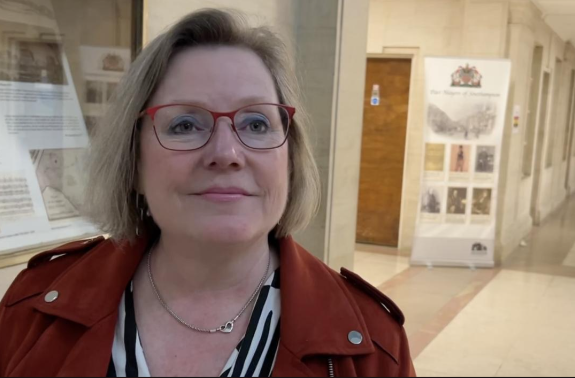
A council “cannot afford to take its eye off the ball” despite showing signs of progress in addressing its financial plight.
The chair of the improvement board, which provides external expertise and challenge to the local government, issued the warning to Southampton City Council.
Council leaders established the voluntary improvement board in October 2023 as part of efforts to avoid issuing a section 114 notice – effectively declaring bankruptcy – and appointing commissioners by the government.
Chair Theresa Grant has drafted a report on the board’s first year of operations, which will be addressed by councillors at the governance committee meeting on Monday, January 13.
Since the board’s inception, the council has received in-principle approval from the government for up to £121.6 million in exceptional financial support in 2024/25, which will cover a budget deficit, transformation expenses, and a potential equal pay claim.
Ms Grant stated that there had been “substantial” good change, praising council leader Lorna Fielker and temporary chief executive Andrew Travers for delivering “real stability” in a “tumultuous” year.
She did, however, acknowledge that there was still much work to be done, with cultural changes and decent governance still a long way off.
“The improvement board is very aware that the financial position is still very fragile with equal pay claims still to be settled, reserves still being precariously low and a large number of assets needing to be disposed of to repay the exceptional financial support,” writes Ms. Grant.
“The council and the board cannot afford to take its eye off the ball and the entirety of the organisation, both members and officers, need to keep a laser focus on the improvement journey so it can turn the council around and provide a stable environment where its residents can thrive and receive the services they deserve.”
Milton Keynes Council Leader Peter Marland, who serves as the improvement board’s political representative, stated that more work was needed to ensure councillors had a “single version of the truth” about the authority’s “precarious” finances.
Mr Marland stated that politically, there were still “significant” issues to address.
He went further: “The clarity and timeliness of information, appointment of permanent senior officers, the scale of the equal pay problem and the long-term capacity to embed change in the organisation remain as areas of significant risk, and despite some early positive improvements to the overall trajectory, the pace of the work now needs to accelerate with improvements needed on the content of transformation plans and grip on financial detail across the organisation.”
According to a separate report from chief executive Mr Travers, who was appointed in February last year, substantial progress has been made, but the following steps will be “much more challenging”.
He stated that without additional government assistance, the route to establishing a legally balanced budget for 2025/26 was “extremely narrow”.
Mr Travers stated that the current plans are legitimate, but that the “real test” would be how everyone on the council works together to produce change.
The council is presently looking for a permanent chief executive, with Mr Travers’ fixed-term contract set to expire in April.

Leave a Reply